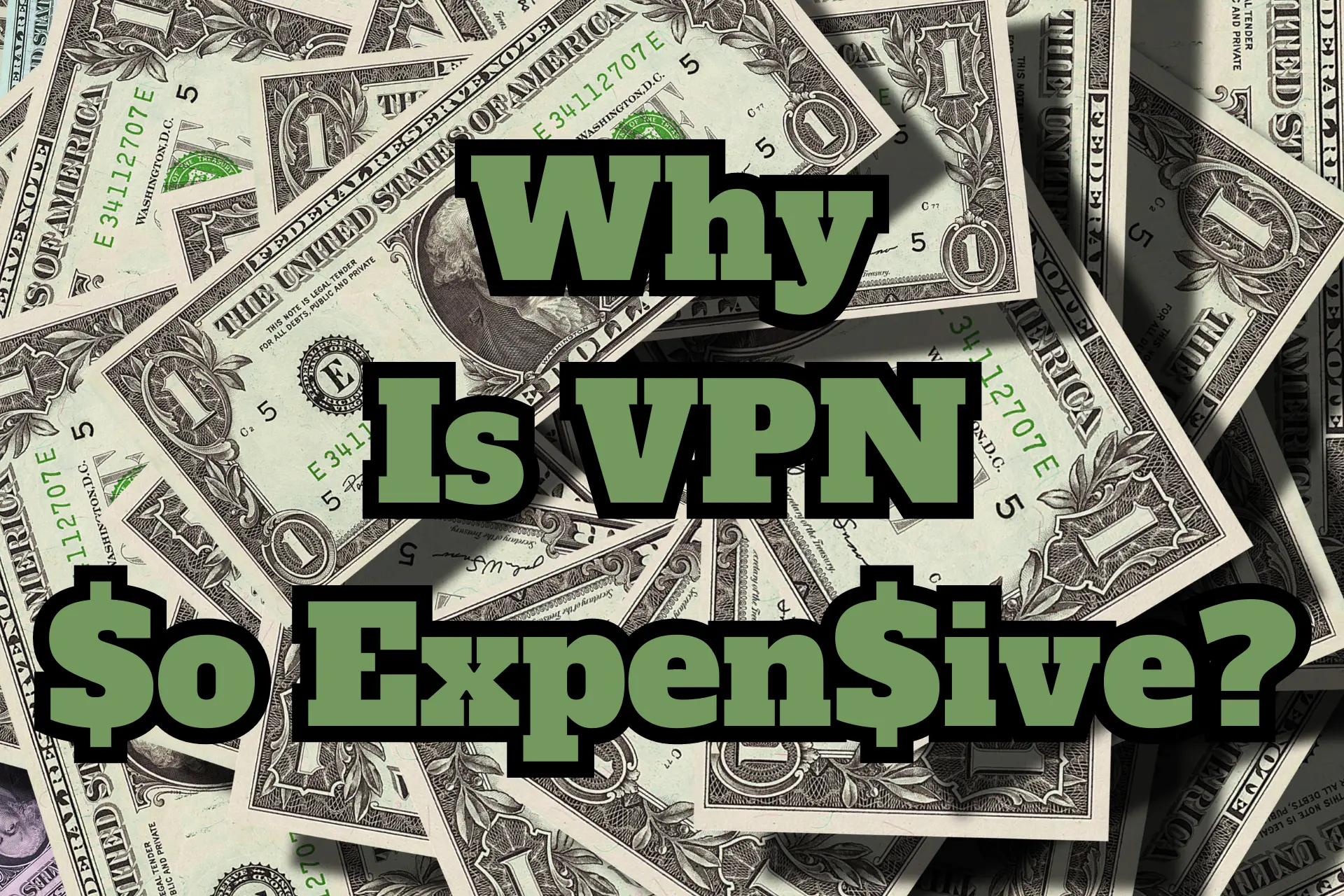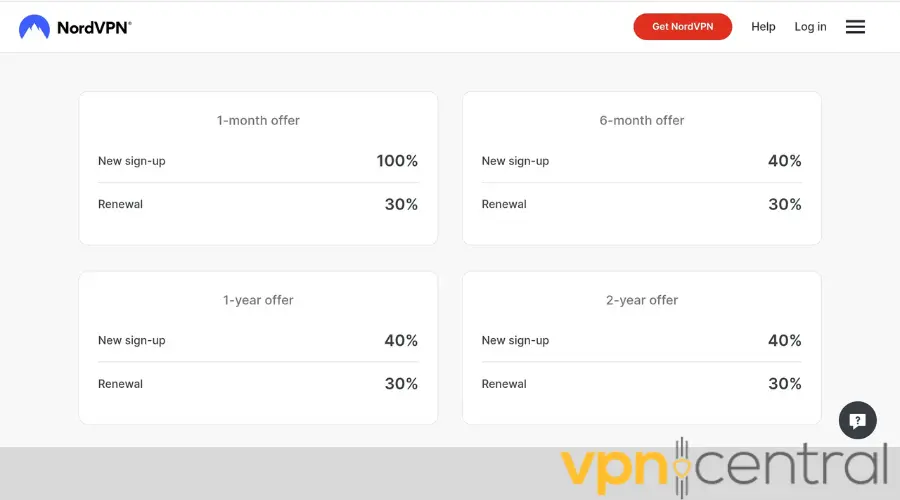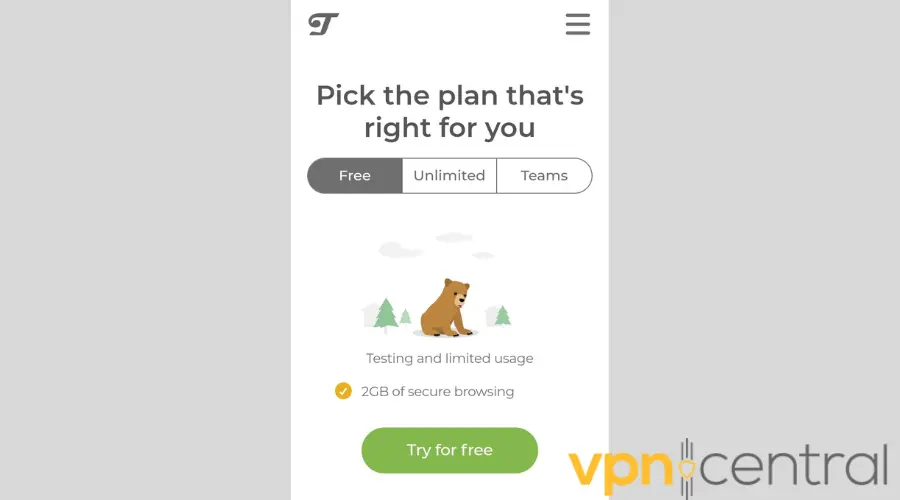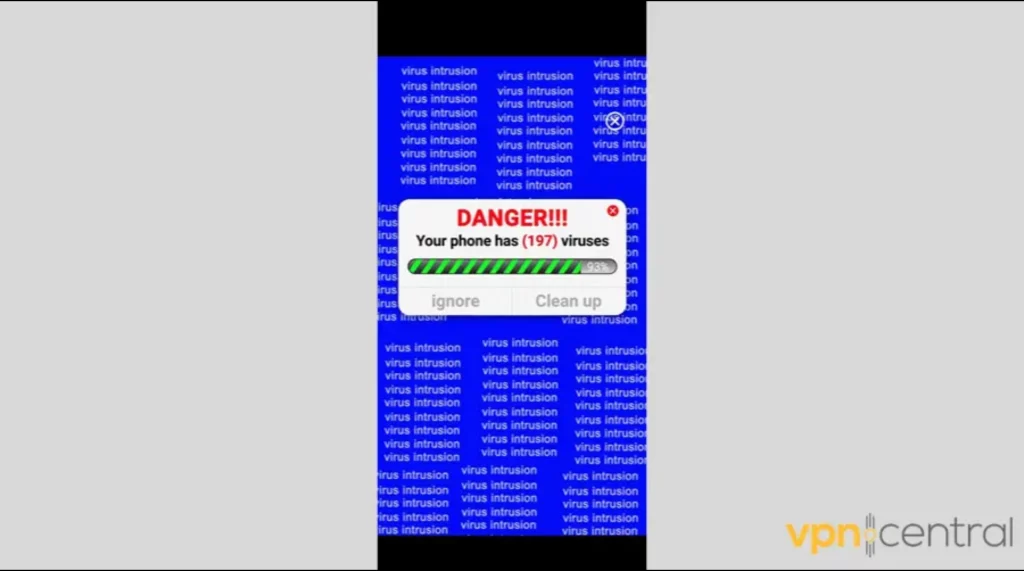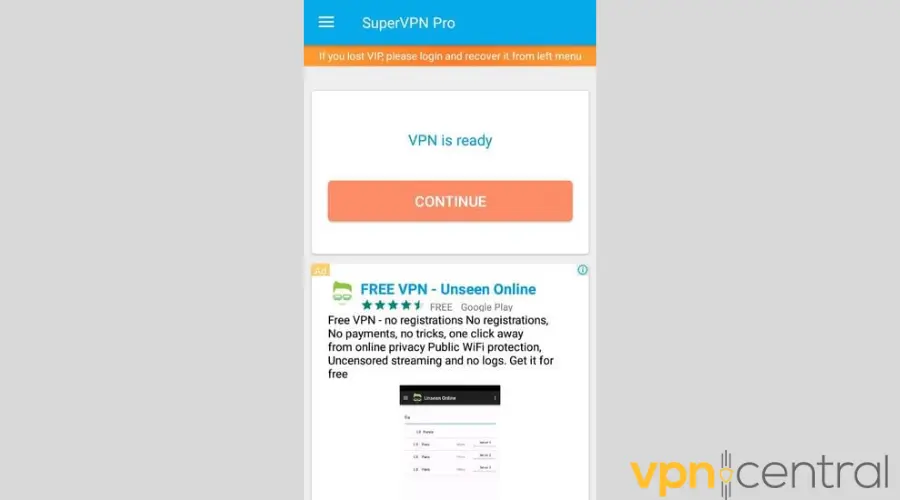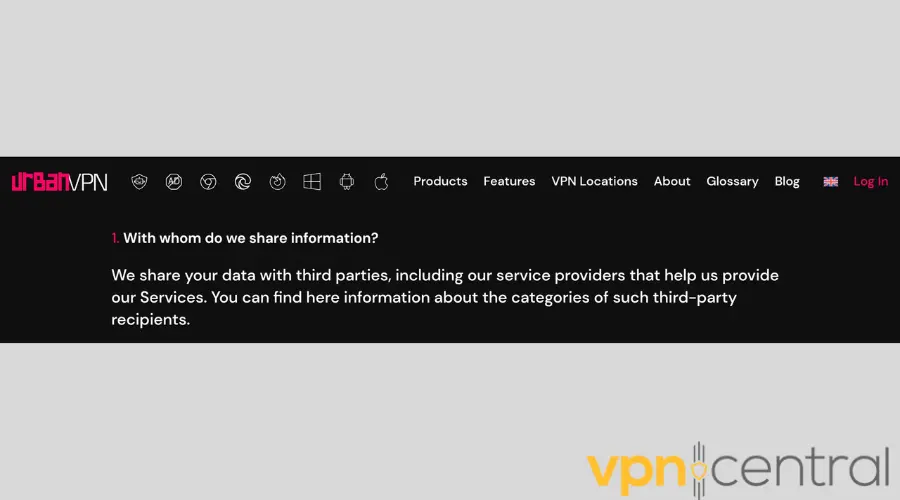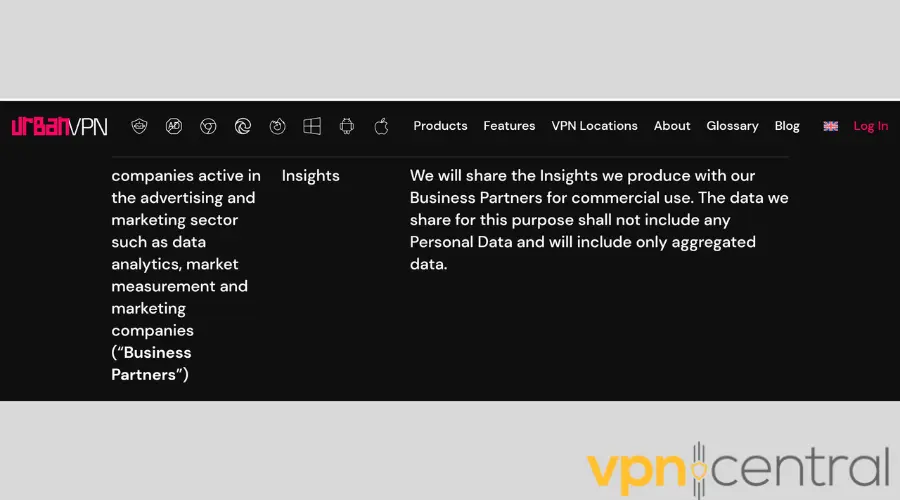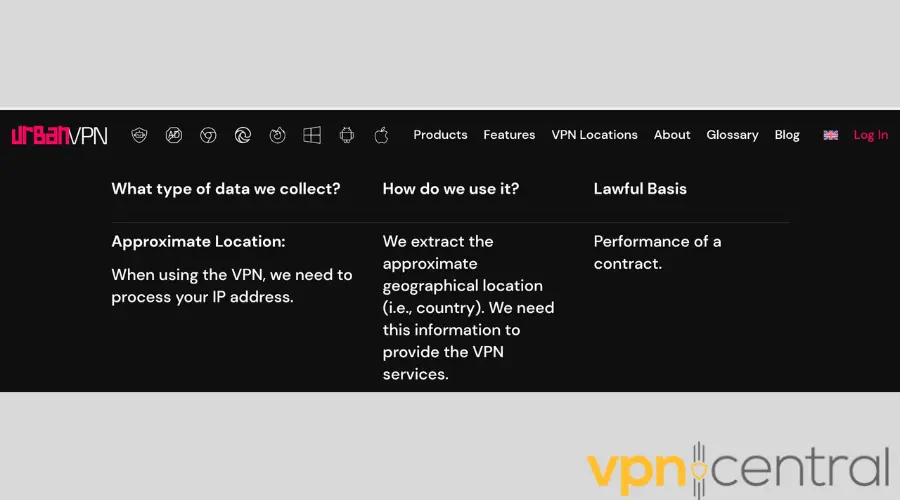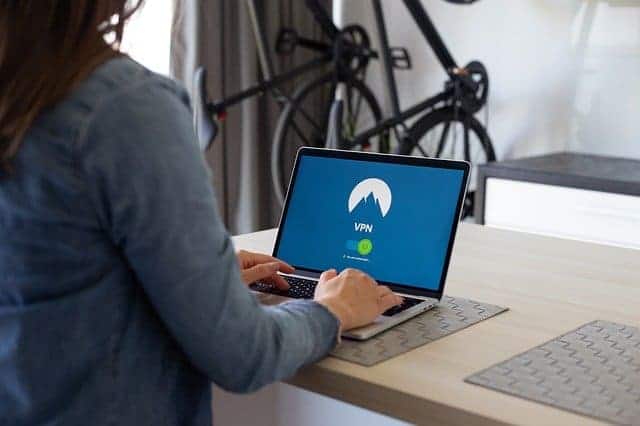Why Is VPN So Expensive? Deep Dive Examples
Servers are the most expensive elements of being a VPN provider, and it costs VPNs “an arm and a leg” to maintain them. So, how much exactly are an arm and a leg these days?
Why Do VPNs Cost Money (Explained)
You probably heard before that “there’s no free lunch.” Many online services and platforms are touted as being “free.” That, of course, couldn’t be further from the truth as companies have to keep the lights on somehow, and their CEO’s Lamborghini isn’t exactly cheap to run.
So, why should VPNs be any different? The truth is, they aren’t. While there’s plenty of “free” VPNs out there, ALL the good ones cost money. It might not be much money, but it is a considerable amount in the long run. So, why do VPNs cost money?
VPN providers, just like other companies, have many expenses and have to maintain a vast network of servers around the world. Servers are indeed their main expense as they’re very costly to maintain, and many VPN providers have thousands of them. There are also considerable marketing costs associated with VPNs.
Why do VPNs cost so much?
There are basically two main expenses for VPN companies. Those are servers and their maintenance and marketing costs. Both can climb up very quickly as the company is growing in terms of customers and numbers of servers worldwide.
Servers
Servers are the most expensive elements of being a VPN provider, and it costs VPNs “an arm and a leg” to maintain them. So, how much exactly are an arm and a leg these days?
Best VPN Overall
Best VPN Features
You have to keep in mind that servers aren’t only hardware that you keep somewhere; it’s also software. But, more importantly, they run on electricity. And a lot of it.
ZDNet did a calculation for a single server using an average of 850 watts per hour. That comes out to 7,446 kWh per year. If we multiply it by 10.59 cents, the average cost for commercial use in 2020 in the US, we get $788,53 per year. For a single server.
VPN companies have thousands of servers worldwide, and the costs aren’t going to be the same for all of them as some countries or states are cheaper than others. Some will cost much higher than the figure we presented above, while many others will cost much, much less.
Still, maintaining servers is a costly business and the main reason why VPNs cost money and are expensive in many peoples’ eyes.
Marketing costs
Marketing is also a considerable expense for VPN companies and the one that can make or break them. On one side, you need to get as many customers as possible to use your service, and on the other, the cost for ads, influencers, and affiliate marketing can very quickly add up.
It’s a balancing act of finding a reasonable ROI so that the company can continue to grow while being able to maintain servers and other costs.
Other costs
There are, of course, many other expenses from taxes to payroll. It also depends if you’re starting a VPN service from the ground up or using one of the existing VPNs that you can re-brand.
Is it worth paying for a VPN?
It is definitely worth paying for a VPN as privacy, security, and peace of mind are priceless. There are many VPNs out there that are free, but they don’t offer the same level of service by a long shot.
Although VPNs can seem like a bit of a luxury in some countries with lower standards, privacy IS luxury these days.
With every company, organization, and government institution tracking all our moves and trying to sell us something or even worse, trying to control us, VPN shouldn’t seem like a luxury, but a necessity.
Once you look at it that way, you’ll find that a couple of bucks each month isn’t all that much.
Are cheap VPNs worth it?
NordVPN’s prices. Can you put a price tag on privacy?
There’s definitely a difference between cheap and free VPNs. In fact, some of the best VPNs available don’t cost (too) much money and can be an inexpensive way to protect your privacy and add a layer of security to your internet connection.
Major VPN providers have millions and some even tens of millions of customers. That’s why they can afford to have lower prices than smaller VPNs although they have much more servers to maintain (thousands, instead of low hundreds).
Are free VPNs worth it?
Most free VPNs aren’t worth it and can actually be outright dangerous to use as they’re selling your data to third-party companies to make some money.
There have been numerous news reports of free VPNs that sold their customers’ data to third parties. They are often doing precisely the opposite of what a VPN is deemed to do.
You will have to make sure that your data and personal information aren’t being used against you. The best thing to do is to do your research before you install a free VPN from the internet, Google Play, or App Store.
Can VPNs be free? (Does it cost money to have a VPN?)
There’s just about a handful of good free VPNs out there. The thing is, they all come with some restrictions. Often it’s a combination of data limits, ads, only a few servers to choose from, and similar constraints.
However, they do protect your data, offer privacy protection, let you browse content outside of your region that is otherwise restricted, and are free. Sometimes, people need just that and don’t need any additional features. Therefore, it doesn’t have to cost money to have a VPN. It all depends on what you’re looking to get out of one.
You also need to be aware that good VPNs, that are also free, aren’t good for one thing in particular, and that’s streaming video. You see, they have data, and often, bandwidth restrictions and are in general not even supporting video streaming or P2P file transfers (torrenting). So, if that’s one of your requirements, you better open your wallet.
Why do VPN’s vary so much in price?
A VPN provider (or any company for that matter) has to decide at what price point they can sell their products and services in order to be able to pay for all of their expenses and overhead and still make some money.
It’s up to the company to find out what their target customers are willing to pay for their service. Some VPN companies will lure customers in with a lower price as a part of their overall strategy while others think that their superior features and benefits will make customers shell out more money out of their pockets.
As we already mentioned, more servers mean more expense. That’s why, to be successful in the long run, you either have to have a lot of customers, or prices that will make server maintenance manageable.
Some companies are also trying to capitalize on their brand recognition and existing customers on other platforms. An example of that is Mozilla and their VPN service that is considerably higher than the Mullvad VPN it’s based on.
How to keep your VPN costs low?
The easiest way to keep your VPN costs low is to sign up for a multi-year contract. This will drive the monthly cost to only a couple of dollars a month.
You can also use a coupon that can sometimes drive the price even further down. For instance, specialized websites such as AppSumo have incredible deals all year round and some of the top VPNs such as NordVPN make an appearance regularly. Sign up for their newsletter and get notified of the newest VPN deals.
And lastly, wait for Black Friday and find an unmissable deal. That’s when I buy most of my software, apps, or hardware. Get an annual contract and renew it every Black Friday for the lowest prices.
Why should I pay for a VPN?
Not all VPNs cost money. There are hundreds on the market that are free. But the vast majority is considering you to be the product and are selling your data to other companies in order to make up for the free VPN service that they’re providing.
On the other side are many major VPNs that offer great service and even have a moral authority. They do charge for their service but offer a far superior product to the general public. And that’s why you should pay for a VPN.
Why Is VPN So Expensive? [Deep Dive + Examples]
That’s the size of the VPN market globally in 2022. At a compound annual growth rate of 15.3%, it’s on pace to exceed $77 billion in 2026.
The average VPN subscription fee is $10 a month. However, you might have to pay double that amount to get all the bells and whistles.
Forking over anywhere from $120 to $240 a year can be a steep price for online anonymity.
Is it justified?
Why is VPN so expensive?
VPN fees can be so expensive because it’s hard to keep the lights on in this business without getting your hands dirty.
Your internet traffic data is a valuable commodity. So, it’s always tempting for tech companies to exploit it even at your expense.
That’s why charging money to cover their costs and turn a profit is the price honest vendors have to pay for doing what’s legal, ethical, and moral.
Now to another interesting question: what bills do VPN service providers deal with?
How much does it cost to run a VPN service?
It can cost a lot of money to run a VPN service. But it’s difficult to accurately measure just how much capital a vendor must have to operate it over time before it becomes profitable.
Most VPN service providers haven’t gone public, so they’re generally not transparent about their finances. On the other hand, those that are publicly traded are actually cybersecurity firms that sell a wide variety of products.
For this reason, a VPN could just be a division of a bigger multinational tech corporation, which piggybacks on the resources of its parent organization.
Also, it’s not uncommon for one entity to have multiple VPNs on its portfolio. Sister brands may operate independently on paper, but it’s not always clear what company resources they really share.
To keep it simple, here’s a list of the main ongoing expenses of a VPN operation:
Using NordVPN, owned by the Lithuanian unicorn Nord Security, as an example, let’s throw more light on each of these overheads.
Server colocation
VPN vendors work with data centers in different countries and territories to house or lease their hardware. The factors that can affect server colocation prices include:
According to Atlanta-based Digital Service Consultants, the average monthly colocation fee in the US in 2019 ranged from $45 to $300 per U per month.
NordVPN first announced that it had started storing and maintaining its own servers in third-party data centers across the world in October 2020. So, it may still be renting hardware and paying some of its colocation partners in dozens of cities.
Office rent
Rent is another factor that makes a VPN expensive. In Panama City where NordVPN is headquartered, renting a 1,355–square feet commercial space could cost more than $2,260 a month.
Payroll
According to Crunchbase, NordVPN is 250-people strong.
But the company only has 56 employee profiles on ZoomInfo, as of this writing, including the titles Software Engineer, Communications Director, Affiliate Marketing Manager, and Public Relations Manager.
As per Salary Explorer, the average annual salaries (including benefits such as housing and transportation) for these roles in Panama are as follows:
- Software engineer – 23,000 PAB ($23,008.83)
- Affiliate marketing manager – 25,800 PAB ($25,809.91)
- Communications director – 34,000 PAB ($34,013.06)
- Public relations manager – 36,600 PAB ($36,614.05)
If NordVPN has remote employees in the US and other advanced economies, it may be paying them more. PayScale data reveals that the average base salary of professionals that list VPN as a skill earn $89,000 a year.
In fact, Senior Network Engineers can take home up to $152,000 annually.
As far as C-level positions go, CEOs of small businesses like NordVPN usually pocket six figures, around the low end of the 200,000s.
Marketing
Like most VPNs, NordVPN spends an insane amount of money on marketing.
It aggressively advertises its brand to be top of mind and keeps a beautifully designed site. But affiliate payouts must be accounting for the lion’s share of its expenses.
NordVPN offers lifetime revenue sharing to anyone who sends paying users its way. Here’s how much it’s paying its affiliates:
Based on these commission rates, 0% to 60% of the initial payment of new subscribers goes to NordVPN’s coffers. And when they renew, the company only keeps 70% of the pie.
Considering how expensive it can be to run a VPN operation, you might wonder how providers of free services stay in business.
How do free VPNs make money?
Free VPNs make money in a variety of ways.
However, most of them are dodgy.
To have a positive cash flow without charging a single penny, a VPN vendor may:
Monetize convenience
Some VPN companies offer a free alternative to their premium subscriptions. An excellent case in point is TunnelBear.
If you don’t find its massive signup discount enticing enough, at least you can give it a whirl until you max out its data usage cap.
TunnelBear knows that data usage restrictions are annoying. And it hopes to deprive you to the point that you buy a subscription just to experience it in its full glory.
Freemium VPN service providers aren’t the only ones that capitalize on inconvenience to compel you to bring out your credit card. Those that resort to free trials share the same ultimate goal too.
Display ads
Many VPN companies live off sponsorships. They maximize the limited real estate of their apps to display ads from their partner brands. They can come in different formats and are usually intrusive.
Conversely, this is how SuperVPN goes about it:
Ad-sponsored VPNs aren’t malicious per se. But realize that advertisers who truly want to get their money’s worth would want to target the right consumers.
Marketers can’t offer you what you really want without knowing enough about your online activity. So, there’s always a chance that free VPN vendors would track you for the benefit of their sponsors.
If a VPN company practices this, it will normally disclose the logs it keeps and what it does with them in its privacy policy. You might miss it if you don’t read the fine print, though.
Moreover, VPN advertisers could be phishers whose real objective is to steal from you one way or another. If threat actors could abuse Google Ads, they would treat free VPNs as their playground too.
Collect and sell your data
There’s a saying: if you’re not paying, you’re the product.
That’s exactly how many free VPN service providers see you. They keep a record of certain information of yours and put it on the market.
Urban VPN is the poster child for a privacy company that considers user data collection its bread and butter.
Among its quote, unquote, “business partners” are data analytics companies.
Although it claims that it only sells data anonymously, your IP address is one of the pieces of information it gathers.
Your IP can reveal a ton of information about you, which is why hackers would take every chance they get to grab it.
Let paying subscribers use your resources
More sinister vendors turn free VPN users into abundant sources of bandwidth to fuel botnet attacks.
This is the modus operandi of Hola.
It sells the idle resources of its free users to the premium subscribers of the commercial VPN Luminati. 8chan founder Fredrick Brennan exposed this unholy alliance. He said that a hacker paralyzed his site using the Luminati network powered by Hola user devices.
Hijacking IPs to execute ad fraud is another profitable scheme of nefarious free VPN services. In 2023, the IAS Threat Lab busted Oko VPN for residential proxying.
Spy for Big Tech
Some tech titans fund free VPNs to do their bidding.
Perhaps there’s no more scandalous example than Onavo. Before it went offline in 2019, this spyware helped Mark Zuckerberg and Co. monitor people’s online activity outside of the Facebook ecosystem.
Are free VPNs worth it?
Free VPNs are worth it, provided that they make money honestly. For this reason, your safest bets are those offered by vendors that also sell premium subscriptions.
To browse the internet anonymously and encrypt your traffic, you may be able to get by with a free-forever plan that has limited features, speed constraints, and/or data caps.
To play games, stream content, and/or share files over a P2P network, you may find a trial version with full VPN functionality more suitable.
Our top picks are as follows:
| VPNs with a restricted free version | VPNs with a free trial |
| Atlas VPN | CyberGhost |
| Hide.me | ExpressVPN |
| PrivadoVPN | NordVPN |
| TunnelBear | Private Internet Access (PIA) |
| Windscribe | Surfshark VPN |
When your prospective free VPN is ad-sponsored, think twice before creating an account.
When it monitors your activity for the benefit of businesses in the marketing industry, use it at your own risk. If you think about it, any company that tracks what you do online and shares its findings with its dubious partners is not a legit internet privacy and cyber security provider.
Also, it should go without saying that you should steer clear of free VPN services that want to sell your own resources like IP and bandwidth. Being owned or controlled by Big Tech is another warning sign.
In other words, stay away from the free VPNs found guilty of any of the red flags we discussed earlier, including Hola and Urban VPN. SuperVPN deserves special mention because it’s extremely malicious and a lousy custodian of data logs.
Is it worth paying (so much) for a VPN?
Paying for an expensive VPN can be worth it, but you shouldn’t overspend.
Some vendors use a tiered pricing model; the more you pay, the more functionalities you can access. So if you don’t need advanced capabilities and extras, it won’t make sense to buy the costliest option.
For starters, the most important features every decent VPN service has are:
- Expansive global network of thousands of servers
- High concentrations of hardware in popular markets like the US
- Native apps for major desktop and mobile operating systems
- Dedicated extensions for popular browsers
- Router support
- Fast, secure tunneling protocols
- Unlimited server switching
- Unlimited bandwidth
- 10Gbps servers
- Kill switch
- RAM-only data storage
- No nonsense no-logs policy
- Independently audited privacy and security claims
- At least five simultaneous device connections
If these basic features are enough to satisfy your needs, don’t waste your cash on bells and whistles.
But when the VPN you like only sells multiple subscription options of a single plan, strongly consider paying on a monthly basis.
If you’re not ready to commit long-term, a short subscription will minimize your risk.
It won’t entitle you to a huge discount, but you won’t have to pay a large sum upfront either. In case you feel buyer’s remorse, you can ask for a refund at best and lose a small amount of cash at worst.
Some of the services that never disappoint are CyberGhost, ExpressVPN, NordVPN, PIA, and Surfshark. If you go with any of these blue-chip options, expect to get what you pay for.
Summary
So, why is VPN so expensive?
It’s because operating one isn’t cheap. Although free options abound, you should avoid most of them like the plague; they’d either spy on you or implicate you in cyber crimes.
It’s a bummer that you have to budget for a regular subscription just to protect your online privacy and security.
But you can minimize your expense with a reasonably priced service with decent features.
Romj is a veteran copywriter who used to be a Jack of all trades. Now, he’s trying to be a master of one: technology. He jumps down the rabbit hole to size the latest innovations up. As a contributor for VPNCentral, he hopes to help you keep up in our fast-paced world with his discoveries.
Why Are VPNs So Expensive? (Plus Free & Cheap Options)
NB – Some links in this article are affiliate links and we may receive a commission for purchases made through these links at no additional cost to you. A Virtual Private Network or VPN is a clever piece of software which can route a user’s internet traffic through very secure, strongly encrypted servers for maximum privacy and security. They are a great online privacy tool for people who don’t like the level of surveillance that goes on in today’s world, or are cautious about hacking and online data fraud and want more protection than standard Wi-Fi can provide. However, subscribing to a Premium VPN plan isn’t always very cheap, with plans ranging anywhere from $4/month to $8/month for private use VPNs. That’s $50-100 a year, recurring if you want to keep using it (not one-off), which can seem quite expensive for many first time purchasers. But why are VPNs this expensive? Does it really cost that much just to route traffic through a specific server in a specific country? Are the VPN providers ripping us off? What exactly goes into the cost of running a VPN service? In general, VPNs can be quite expensive mainly due to the costs of running servers in multiple countries, especially energy costs for high usage servers. There are also associated setup and running costs that need to be recouped by VPN providers, especially to continue providing reliable access to streaming services which continue to attempt to block them, which is why they sometimes need to charge expensive subscriptions. Therefore setting up, and running and truly legit VPN service that is reliable, fast and actually protects user data is not cheap, and these costs have to be passed onto the customer in the form of paid plans. That said, in spite of this, there are still some good viable free VPN options out there that can work for many users. We’ll give some good options on this as well – you don’t always need to pay to get good VPN servers. It’s also very true that the Premium VPN market is very competitive, with dozens of providers, so cheap options are available there as well, from as little as $2.50/month (we’ll provide some good options here as well). But let’s first cover some of the factors that go into making Premium VPNs quite costly.
The Costs Of Running VPN Services
- General cost of renting server/data centers off third parties if this is their model. And this needs to be done in every single country where you operate servers (in rare cases, geo-located VPN servers are used, which are routed though another country, but this isn’t so common).
- Even higher cost of creating and running their own proprietary server centers if this is their model. Imagine adding up the costs of all server towers, PCs, cabling, technicians, building rental, etc
- Energy costs – server centers can use quite a lot of electricity, both to operate server towers and also to cool them down. The cost of running these centers can run into tens of thousands per month, and will only increase as energy prices rise in the current climate.
- Cost of running separate proprietary DNS servers as well if this is their model.
Of course, VPN servers are nothing like the scale of those used by Amazon or Google, but the major VPN providers still have millions of customers around the world. Therefore, maintaining a server system to accommodate all these users comes at a high cost.
Server Obfuscation – This is why the more top end premium VPNs like ExpressVPN and NordVPN and ProtonVPN‘s Plus Plan – the ones typically relied upon to reliably access streaming services – tend to be quite pricey, up to $8/month for plans. For a VPN provider to provide reliable, long term access to multiple streaming platforms, it’s not a set-and-forget process. There’s a constant cat-and-mouse battle between streaming services and VPN providers, with the streaming companies constantly finding and blocking VPN IP addresses, which means the providers have to issue new ones and keep constantly observing to spot and act quickly whenever one of their IP addresses is discovered and blocked, and create new ones, and so on. It’s a constantly dynamic, changing battle that costs money for the VPN providers to keep up with, which is why the best streaming VPNs tend to cost more money. And then there’s the related problem of finding ways to allow (and maintain access) for users in very restrictive nations like China, for providers that promote this as a selling point (eg. “works reliably in China”). Some providers have to create their own proprietary VPN protocols to fool attempts to detect and block their usage, which costs even more money.
General Operational Costs – And then there’s other basic operational overheads that most businesses have to incur on some level both to get themselves running and to keep themselves viable:
- All good VPNs have apps for all major devices. These apps need to be created and coded for maximum safety and reliability, which means hiring expensive developers – a big up front cost to launch a VPN service.
- Cost of employing and 24/7 customer service team (all major VPNs offer 24/7 support)
- Cost of employing networking technicians to identify and fix any problems that occur.
- Legal and compliance costs of operating servers in all countries they use. Keeping on top of current laws regarding user data in all countries, plus keeping track of any changes in laws that may require them to withdraw services in certain countries if new laws are brought in that mean they cannot guarantee customer privacy.
- Marketing and promotional costs, plus commission payments to affiliates (like me!)
If you add all these upfront and ongoing operational costs, you can see why Premium VPN services do need to charge quite a lot of get their money back and make a profit. Setting up and running a truly legit, credible Premium VPN service is not cheap and needs a lot of investment on the front end and ongoing investment to keep it competitive versus other VPNs on the market.
Why Do VPNs Vary In Price?
In general terms, it’s fair to say that most VPNs are pretty much the same, they operate on the same general principle and probably run through the same data centers in may countries, and are about as fast and reliable as each other. It’s just the branding that’s different, as there are hundreds of different providers now.
That said, paid for VPNs do vary in price, from $2-3 a month up to $8 a month for residential users (businesses probably pay more for bespoke VPN packages). So what’s really different? Do the more expensive VPNs actually have anything to offer, or are they just ripping you off?
Here are some general differentiators to look for in VPNs, when comparing what they cost versus what they are offering you:
Streaming Access – The big factor that can lead some VPNs to be more expensive. If you want reliable access to streaming services globally, then it is advised to go with a more expensive big brand name like ExpressVPN (generally considered the best for streaming), ProtonVPN Plus Plan or NordVPN, where you’re paying $6-8/month typically. Cheaper brands can get you access, but it’s best to go for providers that specifically focus on optimizing this.
Server choice – It’s not a perfect correlation, but in general, the more expensive VPNs like ExpressVPN tend to offer better server choice in more countries (80-100) than cheaper ones (35-50 countries). That said, you can get cheaper VPNs that also offer good server choice (PIA stands out here). But not everyone needs servers in loads of countries anyway – all VPNs, regardless of price, offer servers in the major countries you’d expect (USA, EU, UK, Commonwealth, Far East).
Bypassing censorship – Again if you’re in a more tricky spot in terms of wanting to use a VPN in a country that actively tries to block their use, or has very restrictive censorship laws, it’s generally better to go for a more expensive VPN that has it’s own servers and specifically has access in China, Russia etc as a selling point. Cheaper VPNs that are probably using the same data centers as loads of other cheap VPNs are probably less useful for this.
And then here’s some factors that are pretty much the same between different VPNs, regardless of cost, with only minor differences:
- Unlimited data use (all paid-for VPNs have this)
- Server speeds and reliability
- 24/7 support (they all offer this)
- Zero logs policy (they pretty much all offer this – skip over any provider that doesn’t)
- Number of connections – some offer 4 or 5 devices, some 10, some unlimited, but doesn’t really correlate with price that much.
- 30-day money back guarantee with almost all providers if the service is not to your liking.
See our full guide on whether all VPNs are basically the same, for more on these and other differentiating factors between different providers.
Best Free VPN Options
It should be pointed out though that you don’t necessarily have to pay anything to use a VPN – there are plenty of decent, working free VPN services out there, some of them even with unlimited data usage.
Server choice does tend to be restricted on free versions, but if you can make do with the selection they do have, then some users can do just fine using a free VPN.
See the table below for a comparison of some good, reputable, reliable free VPN options (you do need to be selective when picking a free VPN as there’s quite a few rubbish ones out there)
Free VPN Services (some links are affiliate referral links)
| Provider | Free Server Locations | Data Limit | More Info |
|---|---|---|---|
| ProtonVPN | 3 (USA, Amsterdam, Japan) | Unlimited | See here |
| AtlasVPN | 3 (USA East, USA West, Amsterdam) | 5 GB/month | See here |
| TurboVPN | 4 (USA, Germany, Singapore, India). | Unlimited | See here |
| Hide.me | 5 (Netherlands, USA*2, Germany, Canada) | 10 GB/month | See here |
| PrivadoVPN | 10 (USA, UK, Canada, Germany, France, Netherlands, Switzerland, Mexico, Brazil, Argentina) | 10 GB/month | See here |
| Windscribe | 10 (USA, UK, Canada, Hong Kong, France, Germany, Netherlands, Switzerland, Romania, Denmark). | 10 GB/month | See here |
| Tunnelbear | 49 | 500 MB/month | See here |
However, here’s some caveats to bear in mind when using free VPNs:
- Data usage is often (not always) restricted on free versions – see table above.
- Server speeds are also often slower than on premium plans.
- Customer support is either limited/slow or zero on free VPNs
- Free VPNs will almost NEVER allow access to streaming services. You need Premium plans for that.
- There are lots of shady, not-100%-legit free VPN/proxy hybrids (eg. Opera VPN, UrbanVPN, DewVPN) that are NOT recommended for really serious stuff. You don’t know where your data is going and can’t be sure it’s secure. Especially avoid free “VPNs” built into browsers if you’re really privacy conscious; use legit VPN apps only. Stick to free versions of reputable, legit VPN brands as we listed in the table above that maintain zero log policies even on free versions.
But if you can get past these limitations then there are still plenty of great free VPN options that will provide for the monthly internet privacy needs of many users without needing to pay anything.
Best Value Premium VPN Options
It’s also true that not all Premium VPNs cost the earth in terms of subscriptions – there are some quite cheap options out there.
Here’s some good value VPN plans that stand out for total actual cost per year to get started with a plan:
- AtlasVPN– An excellent newcomer service that offer 12 month plans for $3.29/month ($40/year) and a no nonsense server selection in just the main American/European/Commonwealth countries you’d expect. No paying extra to have servers in loads of countries, most of which you’d never even use. Just a stripped down, basic VPN service with a price to match.
- Private Internet Access (PIA) – A great value, long standing VPN service that offers the best of everything – servers in 80+ countries plus great values plans at $3.33/month for 12 months ($40/year), with flash sales often even cheaper.
- PrivadoVPN– Use our special deal affiliate link to get a 12 month plan for $2.50/month (just $30/year). Great value and a fully legit, safe, Swiss based VPN service.
Therefore, while you can spend $80-100 a year on a Premium VPN, you don’t always have do. It’s true that the top end, more costly providers like ExpressVPN and NordVPN are probably best to go for specifically for users who want reliable long term access to multiple streaming services worldwide, or lots of server choice, not all users need these features. They just want a no nonsense VPN that encrypts their connection, and will only ever use a couple of server locations. In these cases, a budget option is fine (plus all 3 of the above options currently still do provide pretty reliable access to streaming platforms).
And then here are some of the best value VPNs in terms of pro-rata cost if you buy longer term plans (ie. the total initial outlay may be substantial, but the actual pro-rata cost per month is very low to use them):
- AtlasVPN– 3 year plan works out at $2/month ($72 for 3 years use, plus 3 extra months free with current offer). Excellent value no nonsense VPN service, even better value per month than the 1 year plan.
- Private Internet Access– 3 year plans works out at $2.03/month ($79 for 3 years, plus 3 extra months free currently on offer).
- PrivateVPN – 3 year plan for around $2.00/month (around $70 payment)
- Surfshark– 2 year plan for $2.50/month ($60 payment).
Online gamer and general home networking enthusiast. I like to create articles to help people solve common home networking problems.
Recent Posts
NB – Product links in this article are affiliate links. We may receive a commission on any referrals made at no extra cost to you. VPNs or Virtual Private Networks are just pieces of software.
NB – Product links in this article are affiliate links. We may receive a commission on any referrals made at no extra cost to you. Private Internet Access is a long standing Premium VPN service.
About Us
Weak Wi-Fi Solutions is a Home Networking blog offering solutions to common connectivity problems in the home.
Affiliates Notice
Weak Wi-Fi Solutions participates in the Amazon Affiliates Program and other affiliate programs. As such, we earn from qualifying purchases, meaning we may receive a small commission from purchases made off product links on this site.







